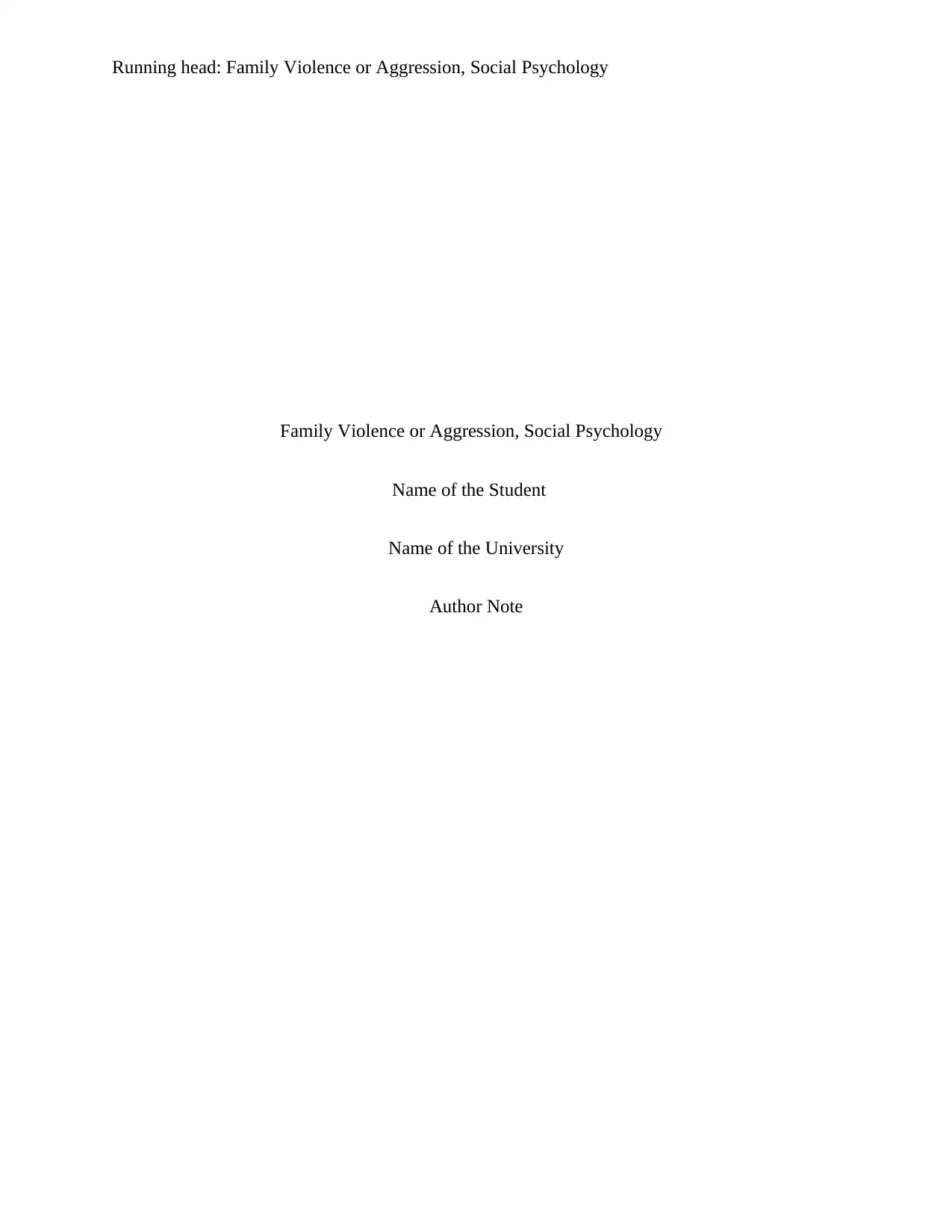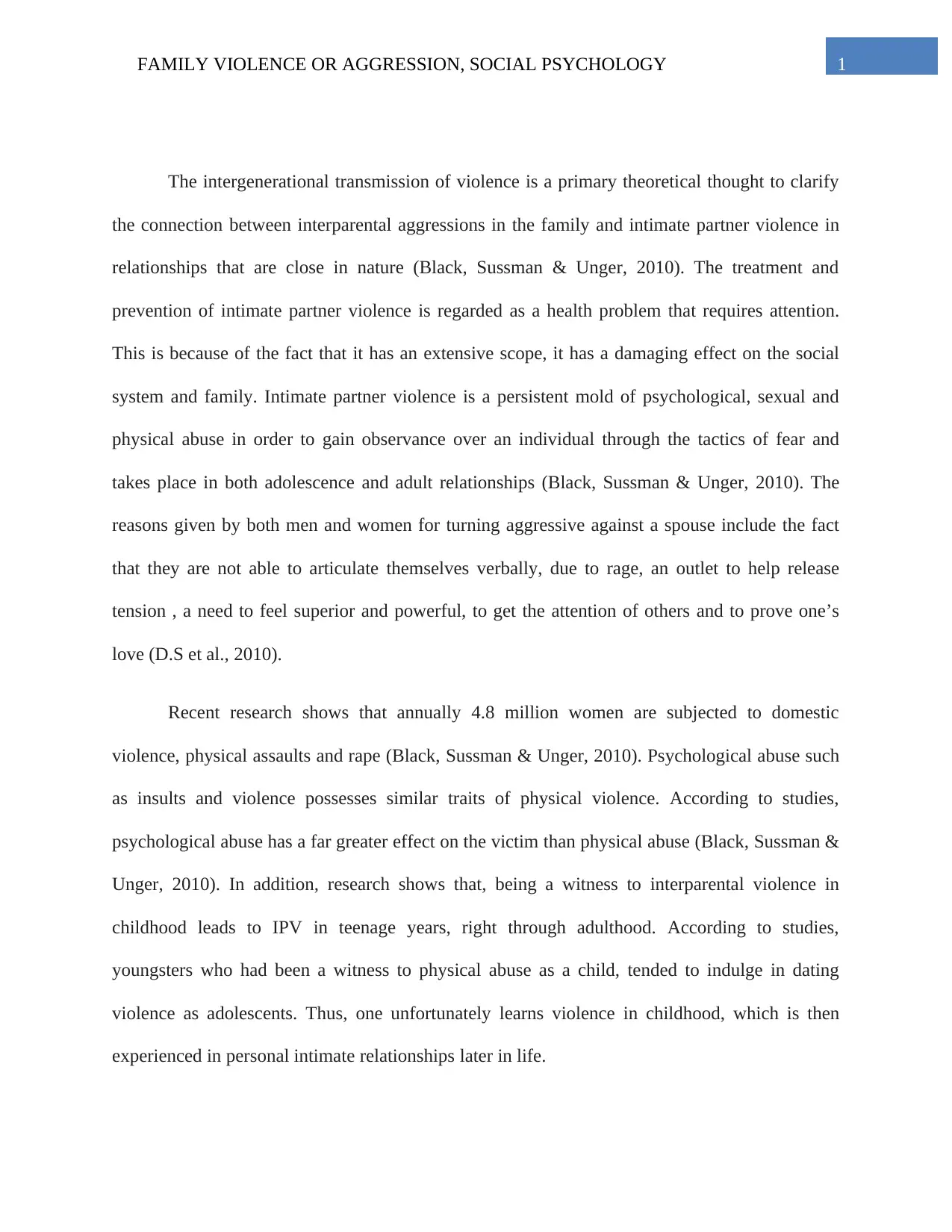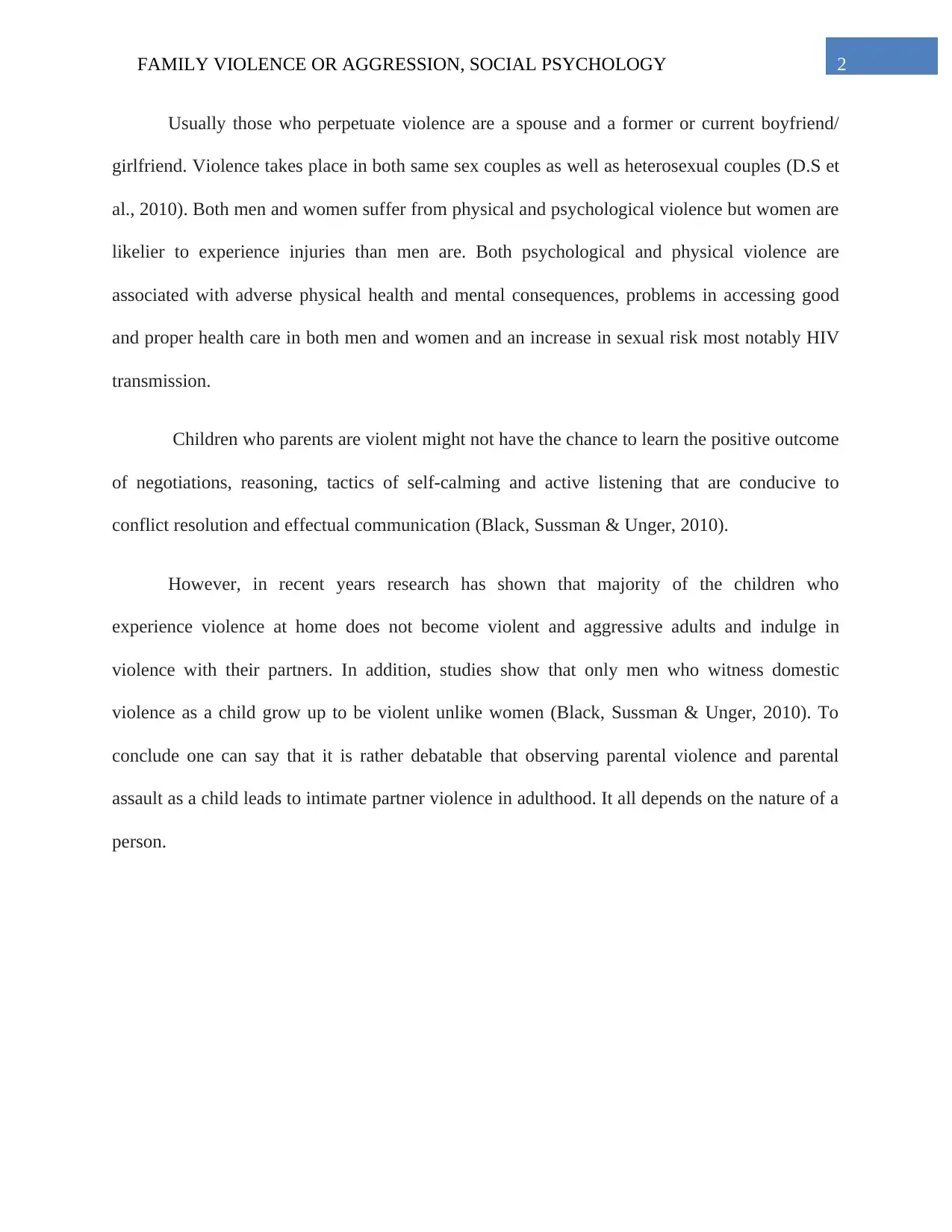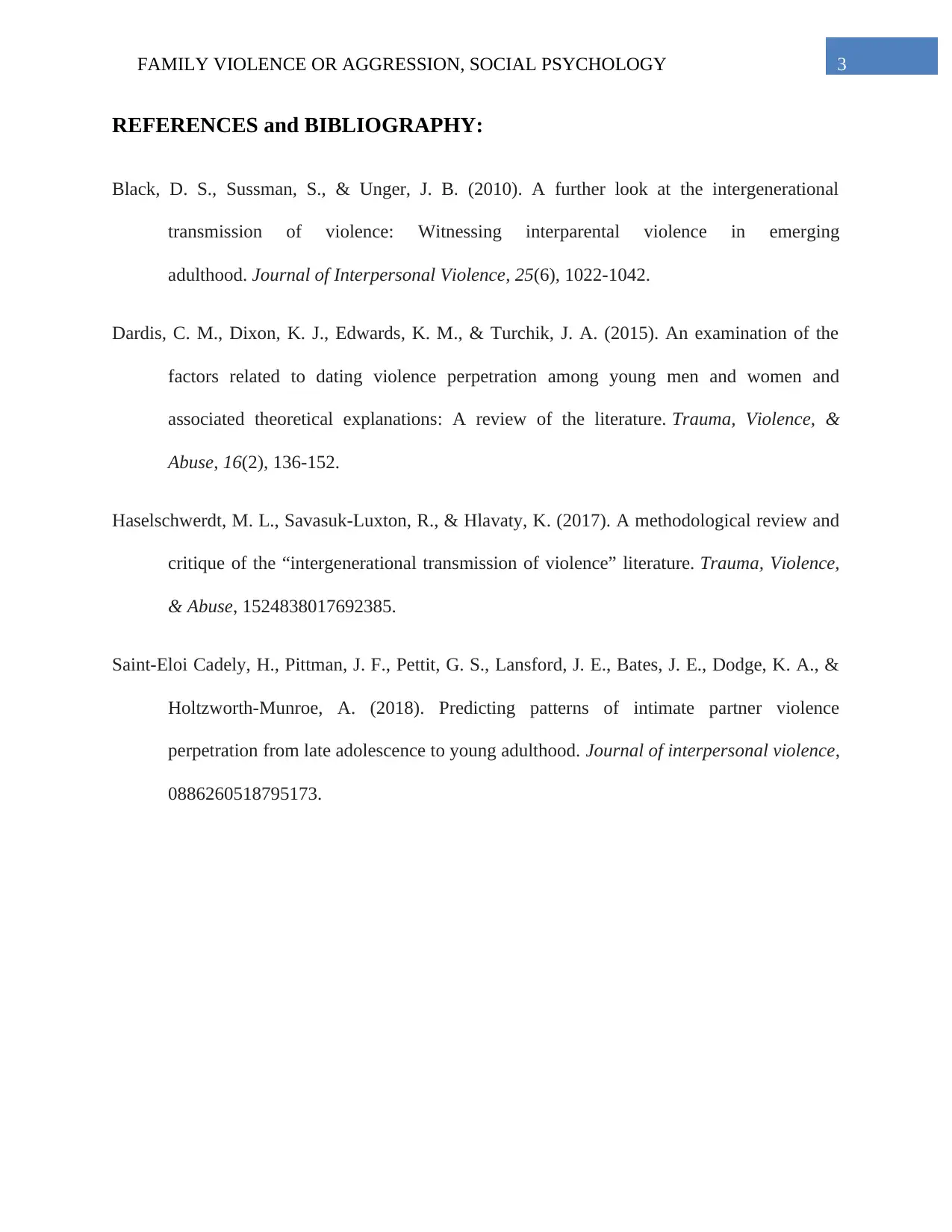Family Violence or Aggression: Social Psychology Report
VerifiedAdded on 2023/05/30
|4
|855
|472
Report
AI Summary
This report delves into the intergenerational transmission of violence, a key concept in social psychology, examining the link between witnessing interparental aggression in childhood and intimate partner violence in adulthood. It explores the various forms of family violence, including psychological and physical abuse, and their impact on both men and women. The report highlights the potential consequences of exposure to violence, such as difficulties in conflict resolution and adverse health outcomes, while also acknowledging that not all children who witness violence become violent adults. The report references studies and research to support its claims and concludes by emphasizing the complex and debatable nature of the relationship between childhood experiences of violence and subsequent intimate partner violence, suggesting that individual factors play a significant role.
1 out of 4











![[object Object]](/_next/static/media/star-bottom.7253800d.svg)